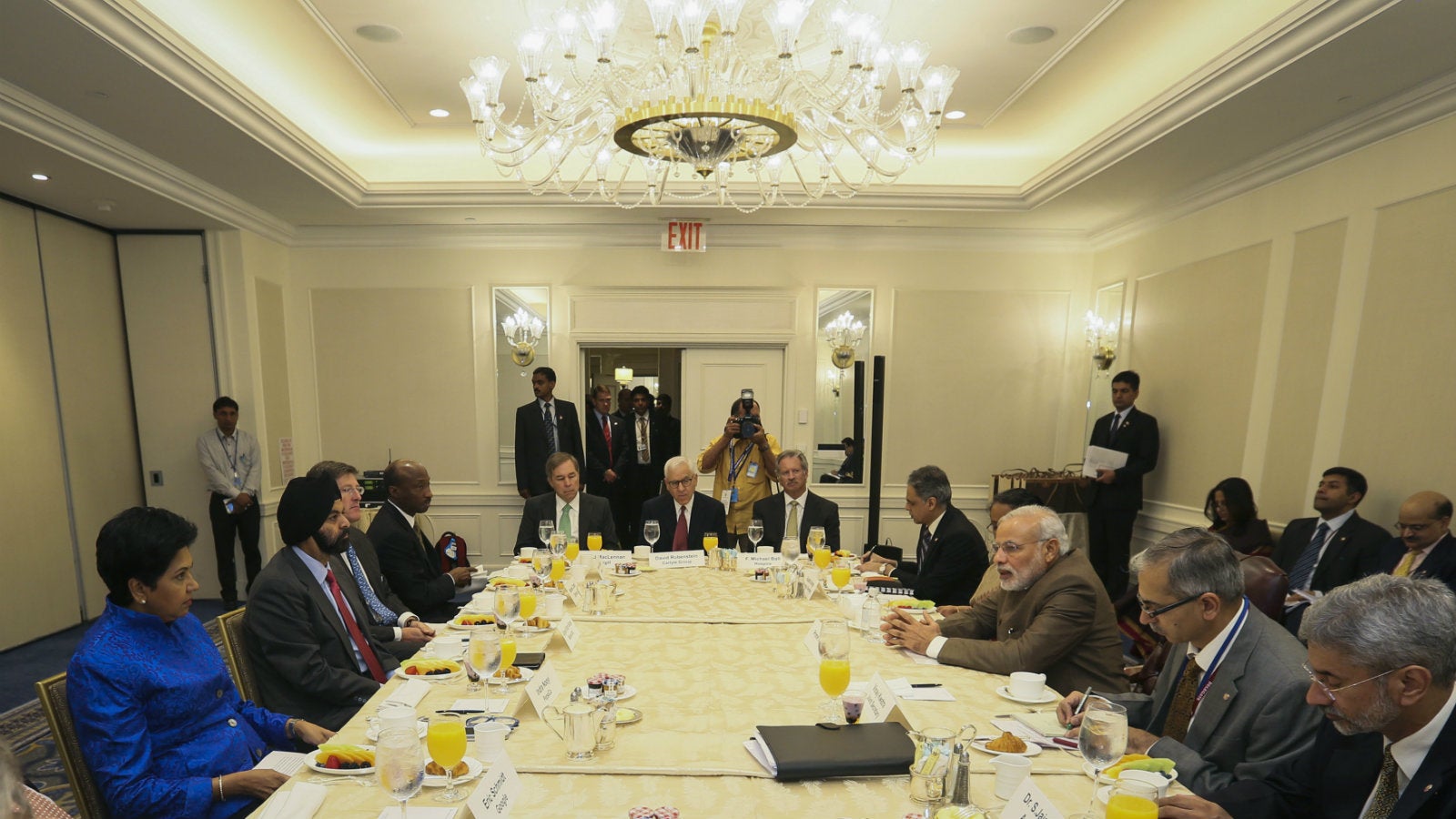India Inc: Near-term sceptics, long-term believers in India’s growth story
The goods and service tax (GST) introduced this year and the currency ban last year have taken the steam out of India’s growth story, at least for now.


The goods and service tax (GST) introduced this year and the currency ban last year have taken the steam out of India’s growth story, at least for now.
That’s according to 200 chief financial officers (CFOs) surveyed in India by Deloitte, an audit and consultancy firm. Only 8% of those surveyed are “very optimistic” about the country’s economic prospects in the next one year. However, the short-term pessimism seems to dilute over a longer time-frame, as 56% of the polled CFOs are extremely bullish about the five-year horizon.
To be sure, some indicators don’t hold a promising picture. New investments, for instance, slipped to a 12-year low in the April-June quarter. The core industries—coal, crude oil, natural gas, refinery products, fertilisers, steel, cement, and electricity—are struggling. Their index grew at just 0.4% in June, compared to 7% in the same month last year.
The major short-term challenge for most Indian companies is the GST, rolled out on July 01. Under this new tax regime, which subsumes a bunch of disparate taxes, it is mandatory for firms with a yearly turnover of over Rs20 lakh to digitally file taxes every month. And every participant in the supply-chain needs to adhere to a strict set of filing norms, otherwise the tax liability of businesses involved in producing that particular goods or service goes up.
“The transition to GST system may disrupt the working cycle for many companies for some time as they have to modify their supply chain based on the assessment of tax savings and inventory management costs,” the Deloitte survey said.
With the entire taxation process moving online now, upgrading their technology and integrating it across all functions remains a key challenge for most businesses. But CFOs are also worried about things like big data (analytics), mobile devices and cloud-based platforms (enterprise mobility), and security.